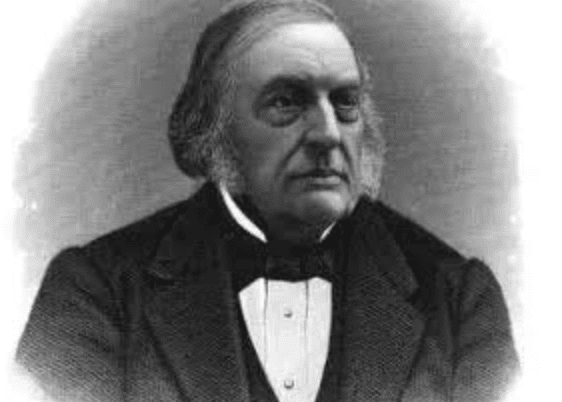
 Albany’s Ira Harris (1802-1875) – judge, Senator, law school founder, confidant of Abraham Lincoln – was also an inspired father, who helped change New York’s future for married women in the mid-19th Century.
Albany’s Ira Harris (1802-1875) – judge, Senator, law school founder, confidant of Abraham Lincoln – was also an inspired father, who helped change New York’s future for married women in the mid-19th Century.
Harris graduated with first honors from Union College in Schenectady and in 1827 was admitted to the bar. Harris was elected to the state Assembly and eventually became a supreme court justice in 1847.
Harris’ election occurred during a seismic shift in New York politics: the Democratic party, led by former President Martin Van Buren, was in decline as a result of a split over slavery and the newly emerging Whig Party took control of the State Capitol.
He was among the leading Whigs from his perch as a representative in his hometown of Albany.
His most important contribution in his public career occurred when he served in the state constitutional convention in 1846. He proposed a radical initiative: a married women’s property rights act for New York.
His short amendment sought to abolish coverture, the long-established English doctrine that a woman lost her rights to control her own property upon marriage. Under coverture, married women could not sign contracts, take title to real estate or otherwise control any property without their husband’s consent.
Children were often considered “property” as well and remained in the husband’s possession after divorce or separation.
In his speech before the Convention, Harris made the amendment personal. He referred to his young daughter Clara and argued in favor of the bill “as a father, anxious to secure to his own [daughter] the little benefit that he might have.”
In advancing that argument, Harris knew that property rights in land, securities, trusts, stock holdings and mortgages were the new wealth in America and fathers – including the prosperous Harris and other professionals – wanted to protect the inheritance rights of their daughters from what some characterized then as “worthless” sons-in-law.
After debate, the delegates defeated Harris’ amendment removing it from the constitutional proposal offered to the voters.
Undeterred, Harris, while a judge, later worked in conjunction with strong advocacy from women’s groups and other similarly situated fathers of unmarried daughters to protect married women’s property rights.
In 1848, the Whig-controlled state Legislature passed the Married Women’s Property Rights Act, nearly identical to the defeated amendment offered by Harris previously to the state constitutional convention.
The bill became law just weeks before the Women’s Rights Convention at Seneca Falls. Elizabeth Cady Stanton, the suffragette leader who led the movement to sign the Declaration of Sentiments acknowledged the impetus the new law extended to women because it:
“Encouraged action on the part of women, as the reflection naturally arose that if men who make the laws were ready for some onward step, surely the women themselves should express some interest in the legislation.”
A married woman’s right to property was eventually revised in the marriage reform acts of 1909, but its substance remained the same. Even though seldom cited, it still occupies Section 50 of the Domestic Relations Law.
Albany Law School
Harris’ career continued a dramatic assent. In 1851, Harris joined with Amasa J. Parker and Amos Dean – fellow students of Union College – to get Albany Law School chartered, the first independent law school in the country.

 A decade later, Harris succeeded William Seward as New York’s Senator. Harris became a close friend of Lincoln, supporting him in the Civil War effort and even helping to raise a regiment of cavalry, named the Ira Harris Brigade (5th New York Volunteer Cavalry).
A decade later, Harris succeeded William Seward as New York’s Senator. Harris became a close friend of Lincoln, supporting him in the Civil War effort and even helping to raise a regiment of cavalry, named the Ira Harris Brigade (5th New York Volunteer Cavalry).
On April 14, 1865, the Lincolns asked the Senator and his wife to accompany them to Ford’s Theatre. The senator declined but instead his daughter Clara – who he sought to protect by enacting women’s property rights – accepted and was present in the president’s box when John Wilkes Booth assassinated Lincoln.
Harris left the Senate in 1867 but continued to teach equity jurisprudence and practice at the Law School until his death in 1875.
Among all his considerable achievements, Harris’s contribution to women’s rights in New York is a lasting legacy that Albany Law School, the school he founded, and his adopted hometown should always cherish.
Hon. Richard A. Dollinger (Ret.) is a 1980 graduate of Albany Law School, a retired member of the New
York Court of Claims and a former state Senator from Rochester.
Illustrations, from above: A portrait of Harris, and a recruiting broadside for the Harris Guard, 5th New York Volunteer Cavalry.

